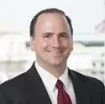The Supreme Court of the United States issued decisions in three cases challenging the constitutionality and proper scope of the federal "honest services fraud" statute.
On June 24, 2010, the Supreme Court of the United States issued decisions in three cases challenging the constitutionality and proper scope of the federal "honest services fraud" statute, 18 U.S.C. § 1346. By leaving the statute intact while drastically limiting its reach, the Supreme Court's decisions have far-reaching potential consequences.
Why This Matters
Since its conception by federal prosecutors in the 1970s, the doctrine of "honest services fraud" has become one of the most flexible tools in the U.S. Department of Justice's repertoire. Originally, the federal mail and wire fraud statutes were viewed as only forbidding schemes to defraud persons of their money or property—a ban on scam artists using the federal mails or wires in furtherance of their schemes to fleece the public. However, prosecutors began advancing a new vision of the concept of fraud, which also encompassed schemes to defraud people of their intangible rights. Chief among these, according to the government, was the right to "honest services," a phrase used as shorthand for the concept that, in certain circumstances, a person who owed another a fiduciary duty could be held responsible for betraying that trust.
Although the doctrine was initially used to punish corrupt state-level government officials for violations of their duty to provide good governance, it quickly spread into the private sector. There, it stood as a vague and confusing warning—in certain, ill-defined cases, a private party's violation of civil fiduciary duties might rise to the level of crime.
For a brief moment in the 1980s, it seemed as though this trend might halt, as the Supreme Court ruled in the case of McNally v. United States that the federal wire and mail fraud statutes were not broad enough to encompass the government's theory of "honest services fraud." However, U.S. Congress quickly responded to McNally by adopting 18 U.S.C. § 1346, a terse statute that merely stated that the fraud statutes now would reach "a scheme or artifice to deprive another of the intangible right of honest services" without making any effort to define what that right actually was.
As a result, ever since Section 1346 was adopted, there has been little clarity about what it actually prohibits. Meanwhile, the statute's malleability has allowed it to reach an ever-increasing range of public and private conduct. The most dangerous example of this was the "nondisclosure" theory of honest services fraud, a concept that transformed a person's "failure to disclose material information" into a federal felony, punishable by substantial fines and lengthy jail terms. Such a broad doctrine, arguably applicable to a wide variety of private controversies, injected substantial risk into any number of ordinary corporate dealings.
The Supreme Solution
This Term, the Supreme Court decided three cases challenging the honest-services-fraud statute—cases that, through their diversity, illustrate the wide reach of conduct the government has targeted under Section 1346. In the first, Black v. United States, the government had contended that the officers of a media conglomerate had deprived the company of their "honest services" by structuring their compensation packages in a certain way. In the second, Weyhrauch v. United States, the government accused an Alaska state representative of concealing information regarding his relationship with an oil services company, even though governing state laws imposed no requirement that he disclose that relationship. Finally, in Skilling v. United States, the government used honest services fraud as part of its case against Enron's former chief executive officer, accused of deceiving investors about Enron's fiscal health.
In all three of these cases, the defendants argued that the concept of honest services fraud was so lacking of standards that it rendered Section 1346 unconstitutionally vague—that no ordinary person could look at the statute and understand the line it drew between permissible and illegal conduct.
Rather than invalidate the statute as a whole, the Court struck out in a different direction. Surveying the history of honest services fraud, the Court determined that, at its "core," the doctrine unquestionably covered cases involving bribery or kickbacks. Therefore, by limiting Section 1346's application to only bribery and kickback cases, the Court could cure the constitutional vagueness issues raised by broader application of the statute. In doing so, the Court expressly rejected the government's argument that nondisclosure cases—prosecutions based upon a fiduciary's mere "failure to disclose material information"—fell within the statute's constitutional core. With the statute thus constrained, the Supreme Court remanded all three cases to the lower courts for reconsideration in light of Section 1346's new meaning.
What Lies Ahead
The recent rulings strike a major blow against the government's expansive use of Section 1346, but stop short of addressing all concerns regarding the statute. As a result, business planning in the wake of these decisions will require attention to a few additional considerations:
- The Court's limitation of Section 1346 to bribery and kickback cases invites the inevitable follow-up question: what conduct rises to the level of bribery or kickbacks, particularly in the private sector? The Court's discussion of kickbacks refers to a definition provided in the Anti-Kickback Act of 1986, which broadly encompasses "any money, fee, commission, credit, gift, gratuity, thing of value, or compensation of any kind which is provided, directly or indirectly, to [enumerated persons] for the purpose of improperly obtaining or rewarding favorable treatment in connection with [enumerated circumstances]." In light of the breadth of this language, the government may attempt to revive the now-discredited "nondisclosure" theory of honest services fraud by re-characterizing similar matters as kickback cases. While such an attempt would be at odds with the holdings of the Supreme Court's trio of cases, companies must consider expansive kickback theories when evaluating compliance issues.
- With Section 1346 remaining in force in both the public and private sector, it will be important to determine what types of relationships give rise to the fiduciary duties protected by the right of honest services. Although the majority insists that debates over this issue were "rare in bribe and kickback cases," and points to a handful of relationships that are "beyond dispute" (including employee / employer and union official / union member relationships), these assurances provide little guarantee that more tenuous relationships might not also be implicated.
- As the Court's decisions do not directly address any of the other ambiguities that were raised by the parties, attention must be paid to how these longstanding controversies may interact with the newly limited statute. It remains unclear whether Section 1346 prosecutions must be predicated upon an underlying violation of state law, whether the defendant must have pursued some private gain for himself or herself, or whether the defendant must have intended to cause some party economic harm—but each of these limitations may remain viable in parts of the United States, and each would if accepted exempt a wider range of conduct from the statute's reach.
- Courts may need to re-evaluate how Section 1346 intersects with other federal statutes. Although the Supreme Court's focus on the "core" of honest services fraud might appear to render the statute duplicative of the federal bribery and kickback statutes, Section 1346 will likely continue to be invoked in cases where the federal government might lack jurisdiction to prosecute under another, more targeted statute. Similarly, the curtailing of Section 1346 will impact its availability as a predicate act supporting other charges, including criminal and civil Racketeer Influenced and Corrupt Organizations Act actions.
- The Court's decisions eliminate, at least for the foreseeable future, the strongest defense against charges of honest services fraud—that the statute itself was unconstitutional. Although the vagueness argument had seen almost no success since Section 1346 was adopted in 1988, it had gained considerable traction among the defense bar and legal scholars, fueling hopes that the Supreme Court would eventually rule that Section 1346 was irredeemably flawed. Instead, only three justices were willing to hold that the honest services fraud statute should be struck down. Now that the Court has squarely addressed the question, it will be difficult (if not impossible) to rely upon the constitutional argument in the future. As a result, any risk evaluation must recognize that the "new" Section 1346, although narrower in scope, is far harder to contest.
In the months and years to come, the government, the defense bar and the lower courts will struggle with these issues. To be sure, while the trio of cases recently decided by the Supreme Court resolved a number of significant issues, other questions still remain.
The content of this article is intended to provide a general guide to the subject matter. Specialist advice should be sought about your specific circumstances.



